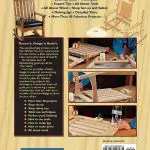Carpentry can be physically demanding, but with proper training and practice, it becomes easier. Carpentry requires skill, precision, and attention to detail.
It involves working with various tools and materials to construct, repair, or install structures. A carpenter must be proficient in measuring, cutting, and shaping wood, as well as understanding project plans and blueprints. While carpentry can be challenging, it is a rewarding profession that offers opportunities for creativity and craftsmanship.
With experience and dedication, anyone can learn the skills necessary to become a successful carpenter and enjoy a fulfilling career in the construction industry.
Tools Needed For Carpentry
Carpentry is a skilled trade that requires proper tools for successful completion of projects. There is a list of essential carpentry tools that every carpenter should have in their toolkit. These tools include a tape measure, framing square, circular saw, chisels, hand saw, hammer, level, and power drill.
It is important to choose the right tools based on the specific carpentry job at hand. Consider factors such as durability, quality, and comfort when selecting tools. It is also advisable to invest in good quality tools to ensure their longevity and effectiveness.
By having the right tools, carpentry tasks become much easier and more efficient, allowing for precise measurements, accurate cuts, and overall better results. So, make sure to gather the necessary tools before starting any carpentry project for optimal success.
Carpentry Skills And Techniques
Carpentry, as a skilled trade, requires learning and practicing various techniques. These skills include measuring and cutting wood, joining pieces together, and installing finished products. Basic carpentry skills involve using hand and power tools proficiently. Mastering common carpentry techniques like framing, trim work, and installing cabinets can be challenging, but with practice and dedication, anyone can become proficient in carpentry.
It is important to understand the different types of wood, their characteristics, and how to work with them effectively. Additionally, learning how to read and interpret blueprints and following safety protocols are essential for successful carpentry work. With patience and persistence, carpentry can be a rewarding and fulfilling profession or hobby.
Whether constructing furniture, building houses, or completing renovations, carpentry skills can be developed and honed over time.
Physical Demands Of Carpentry
Carpentry involves handling heavy materials and tools, which requires physical stamina and strength. Physical fitness is essential in carpentry as it helps carpenters withstand the demanding nature of the job. They need to lift, carry, and maneuver heavy lumber, equipment, and machinery.
Additionally, carpenters often perform repetitive tasks that can strain their muscles and joints. Good physical fitness enables them to work efficiently and reduce the risk of injury. Regular exercise and an overall healthy lifestyle can contribute to improved endurance, flexibility, and agility.
By maintaining their physical well-being, carpenters can better cope with the physical demands of the trade and enhance their overall performance on the job. Developing strength, conditioning, and staying active are all important aspects of being a successful carpenter.
Precision And Attention To Detail
Carpentry requires precision and attention to detail, especially when it comes to accurate measurements. Achieving precision in carpentry involves various techniques. By carefully measuring and marking materials, carpenters ensure the correct dimensions and angles. Using quality tools, such as square and level, helps maintain accuracy throughout the construction process.
Additionally, taking the time to align and clamp pieces securely enhances precision in carpentry. Attention to detail is vital in achieving a high-quality outcome in any project. From selecting the right wood to perfecting joints and finishes, every step demands accuracy.
Mistakes can be costly and affect the overall integrity and appearance of the piece. Therefore, carpentry may present challenges but with proper techniques and commitment to precision, it can be mastered.
Learning And Practice
Carpentry is a skill that requires both learning and practice. The importance of hands-on experience cannot be understated. To become proficient in carpentry, finding opportunities to practice is crucial. Whether it’s through apprenticeships, on-the-job training, or even personal projects, getting hands-on experience allows individuals to hone their skills.
It is in the practical application of knowledge that one truly learns the intricacies of carpentry. Through practice, individuals can familiarize themselves with different tools and techniques, gaining confidence in their abilities. Carpentry may seem challenging at first, but with dedication and continuous practice, it becomes easier over time.
So, if you’re interested in carpentry, don’t be discouraged by its initial difficulty. Embrace the learning and practice opportunities that come your way, and you’ll see yourself grow as a skilled carpenter.

Credit: thediyplan.com
Seeking Guidance And Mentorship
Carpentry may seem challenging, but learning from experienced carpenters can make the journey easier. Mentorship offers numerous benefits, including practical guidance and valuable insights. Finding a mentor in the carpentry field requires some effort, but the rewards are well worth it.
Look for experienced professionals who are willing to share their knowledge and skills. Building a relationship with a mentor can provide you with personalized coaching, feedback, and support. Their expertise and real-life experience will help you navigate the complexities of carpentry and accelerate your learning curve.
A mentor will guide you through various techniques, tools, and safety protocols, ensuring that you develop a solid foundation in carpentry. Invest in mentorship and unlock your potential as a skilled carpenter.
Creative Expression And Fulfillment
Carpentry, as a skill, is both challenging and rewarding. It offers opportunities for creative expression and fulfillment. Woodworking can be seen as an artistic pursuit, allowing individuals to showcase their talent and abilities. From intricate carvings to unique furniture designs, carpentry opens doors to endless possibilities for artistic expression.
The process of working with wood and transforming it into something tangible is personally satisfying. The sense of accomplishment that comes from completing projects is unparalleled. Whether it’s building a bookshelf or crafting a one-of-a-kind sculpture, the satisfaction gained from seeing a project through from start to finish is deeply fulfilling.
Carpentry may require learning and practice, but the rewards it offers make the effort worthwhile.
Job Prospects And Career Growth
Carpentry is a skilled trade that requires dedication, precision, and hard work. With the increasing demand for skilled carpenters, job prospects in this industry are expected to remain strong. Carpenters who excel in their craft have numerous advancement opportunities available to them.
They can specialize in specific areas and become experts in their field. Additionally, carpenters can start their own businesses and become contractors or project managers. As the construction industry continues to grow, the need for carpenters will only increase, ensuring a stable and rewarding career.
With the right training and experience, carpentry can provide a fulfilling and financially lucrative career path. Whether it’s residential or commercial projects, skilled carpenters will always be in demand. So, if you’re considering a career in carpentry, rest assured that the growth potential is promising.
Frequently Asked Questions On Is Carpentry Hard?
Is Carpentry A Hard Skill To Learn?
Carpentry is a skill that can be challenging to learn but not necessarily hard. With proper training and practice, anyone can become skilled in carpentry. It requires patience, attention to detail, and the ability to work with precision. Learning the basics, such as using tools and measuring accurately, is essential.
As you gain experience, you can progress to more complex projects. Having a mentor or taking classes can greatly expedite the learning process. Remember, carpentry involves working with wood, so having a passion for woodworking can make the learning journey more enjoyable.
Overall, while it may take time and effort to become proficient in carpentry, it is a skill that can be mastered with dedication and practice.
Is Carpentry A Lot Of Math?
Carpentry involves some math, but it’s not overwhelming. Math is used for measurements, layouts, angles, and calculations. It helps in determining the quantity of materials needed and making accurate cuts. Basic arithmetic like addition, subtraction, multiplication, and division is essential.
Geometry is also useful for understanding shapes, angles, and symmetry. Knowledge of fractions, decimals, and ratios is required for precise measurements. However, complex algebra or advanced math isn’t typically necessary for most carpentry tasks. Practical experience and problem-solving skills are equally important.
So, while math is involved in carpentry, it’s not overly complex or difficult.
What Is The Hardest Part Of Carpentry?
The most challenging aspect of carpentry is mastering precise measurements, angles, and cuts, which require skill and precision.
Do You Have To Be Strong For Carpentry?
Strength is beneficial but not mandatory for carpentry. While being strong can help in certain tasks like lifting heavy materials, carpentry relies more on skill and precision. Essential qualities for carpentry are manual dexterity, hand-eye coordination, problem-solving abilities, and math skills.
The ability to read blueprints and understand measurements is also crucial. Being physically fit can help prevent injuries and increase productivity, but it is not a prerequisite. Carpentry is a versatile trade, and individuals of different physical abilities can excel in it.
Regardless of strength, dedication, attention to detail, and a passion for woodworking are what truly matter in this profession.
Conclusion
To summarize, carpentry may have its challenges, but it is certainly not an insurmountable task. With dedication, practice, and the right tools, anyone can learn the skills required to become a competent carpenter. While there may be a learning curve involved, the sense of accomplishment in creating something with your own hands is incredibly rewarding.
It is important to embrace the continuous learning opportunities that the field of carpentry offers and stay updated with the latest techniques and trends. Remember, even the most seasoned carpenters started as beginners, so don’t be discouraged by initial setbacks.
With time and experience, you will gain confidence in your abilities and be able to tackle more complex projects. So, if you have a passion for working with wood and enjoy the satisfaction of creating functional and beautiful structures, carpentry might just be the right fit for you.
Start honing your skills and let your creativity shine through the art of carpentry.



















